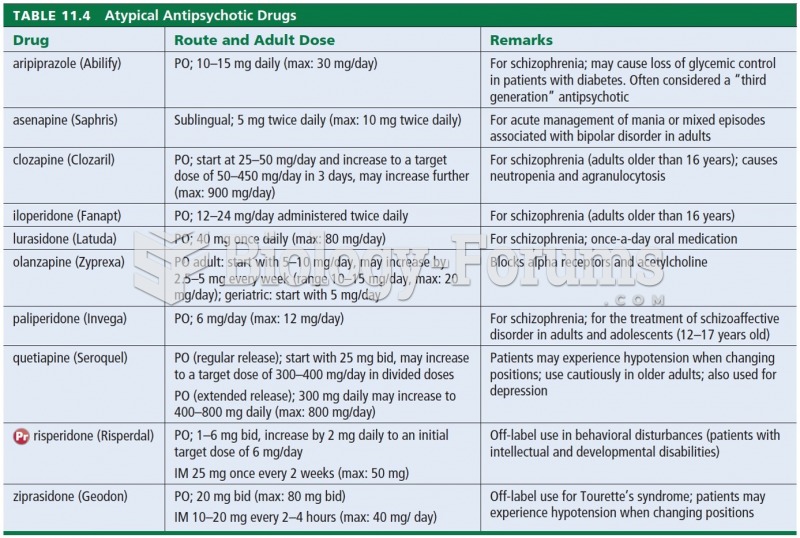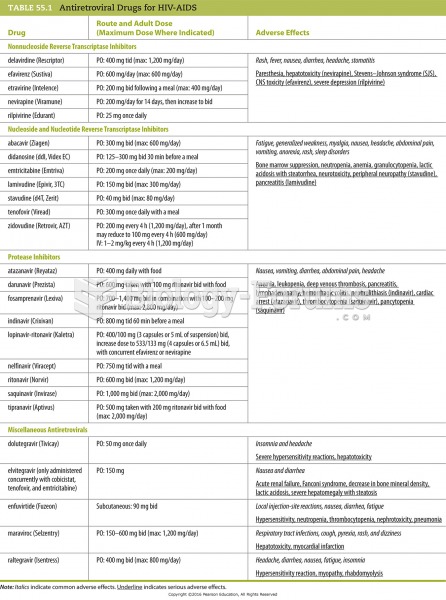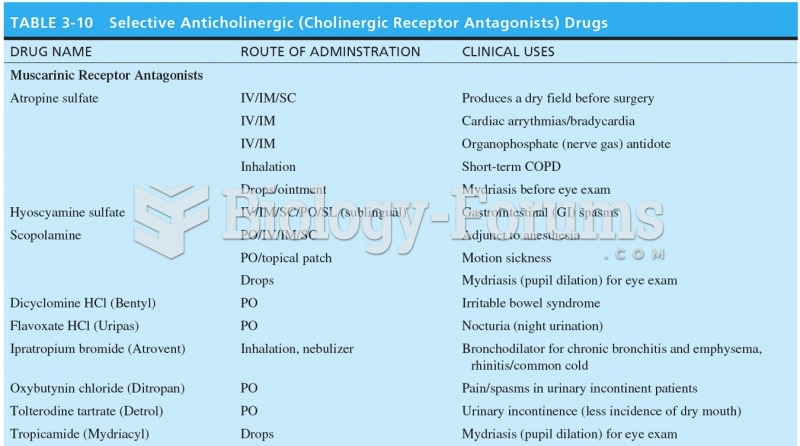|
|
|
Symptoms of kidney problems include a loss of appetite, back pain (which may be sudden and intense), chills, abdominal pain, fluid retention, nausea, the urge to urinate, vomiting, and fever.
Nearly 31 million adults in America have a total cholesterol level that is more than 240 mg per dL.
Over time, chronic hepatitis B virus and hepatitis C virus infections can progress to advanced liver disease, liver failure, and hepatocellular carcinoma. Unlike other forms, more than 80% of hepatitis C infections become chronic and lead to liver disease. When combined with hepatitis B, hepatitis C now accounts for 75% percent of all cases of liver disease around the world. Liver failure caused by hepatitis C is now leading cause of liver transplants in the United States.
For pediatric patients, intravenous fluids are the most commonly cited products involved in medication errors that are reported to the USP.
The ratio of hydrogen atoms to oxygen in water (H2O) is 2:1.







